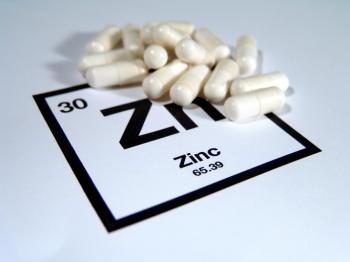Source: Thailand Medical News Sep 24, 2019 5 years, 6 months, 3 weeks, 6 days, 18 hours, 49 minutes ago
A medical team comprising of researchers from the University of Melbourne, University Of Technology Sydney and the University of Adelaide have discovered a critical link between dietary zinc and zinc supplements intake and protection against
Streptococcus pneumoniae, the primary bacterial cause of pneumonia. The study showed that dietary zinc and zinc supplements assisted the human immune system to become resistance to bacterial infections by the
Streptococcus pneumoniae strain.
Pneumonia is a bacterial infection that inflames the air sacs in one or both lungs. The air sacs may fill with fluid or pus (purulent material), causing cough with phlegm or pus, fever, chills, and difficulty breathing. Viruses and fungi can also give rise to pneumonia but in 85% cases it’s the bacteria st
rain Streptococcus pneumoniae that is responsible.
Pneumonia can range in seriousness from mild to life-threatening. It is most serious for infants and young children, people older than age 65, and people with health problems or weakened immune systems such as cancer, HIV and elderly patients.
Worldwide, it is estimated that nearly 2.4 billion people suffer from zinc deficiency, but why this increases susceptibility to bacterial infection has not been well understood until now due to the results of this study.
The research was conducted by an interdisciplinary team using state-of-the-art imaging techniques to reveal how the immune system uses zinc as an antimicrobial for protection during attack by
Streptococcus pneumoniae.
The study has been published in
PLOS Pathogens journal. The team which included University of Adelaide Research Fellow Dr Bart Eijkelkamp, from the Research Centre for Infectious Diseases compared infections in animal models fed with different levels of zinc.
It was found that animal models with lower zinc intake succumbed to infection up to three times faster because their immune systems had insufficient zinc to aid in killing the bacteria.
Professor Christopher McDevitt , lead researcher from University of Melbourne commented in an
interview with Thailand Medical News "Dietary zinc and zinc supplements is associated with immune function and resistance to bacterial infection, but how it provides protection has remained elusive until now. Our study shows that zinc is mobilized to sites of infection where it stresses the invading bacteria and helps specific immune cells kill
Streptococcus pneumoniae. Our findings highlight the importance of ensuring dietary zinc sufficiency as part of any population-wide strategy to control the burden of pneumococcal disease in conjunction with vaccination and other antimicrobial approaches."
This work also translated its findings by showing that specific human immune cells could use zinc to enhance their killing of invading
Streptococcus pneumoniae.
Professor Philip Doble, Director of the Elemental Bio-imaging Facility at the University of Technology Sydney, and a co-author of the study further commented, "The findings from this study are a direct result of application of novel elemental imaging technology to uncover relationships that have previously be
en hidden to analysis, and a testament to cross-disciplinary collaboration,"
Pneumonia accounts for more than one million deaths every year, with the greatest health burden in countries where zinc deficiency frequently remains a major social challenge.
Foods rich in zinc include the following:
Shellfish: Oysters, crab, mussels, lobster and clams
Meat: Beef, pork, lamb and bison
Poultry: Turkey and chicken
Fish: Flounder, sardines, salmon and sole
Legumes: Chickpeas, lentils, black beans, kidney beans, etc.
Nuts and seeds: Pumpkin seeds, cashews, hemp seeds, etc.
Dairy products: Milk, yogurt and cheese
Eggs
Whole grains: Oats, quinoa, brown rice, etc.
Certain vegetables: Mushrooms, kale peas, asparagus and beet greens
It is recommended that an individual should consume at least 8 to 12 mg of zinc a day not only to boost the immune system but also for various other bodily functions that need zinc.
Zinc Supplements
While there are a lot of brands of zinc supplements in the market, many do not contain the right form of zinc for easy absorption by the body and worst some even contain only minute components of zinc while containing other not labelled constituents or some are even fake products. Consumers are advised to only buy reliable brands from reliable pharmacies. Do not buy products from unlicensed stores in malls like Mah Boon Krong etc as most are fake products and avoid buying supplement products online from facebook accounts or unknown platforms.
Reference:
Bart A. Eijkelkamp, Jacqueline R. Morey, Stephanie L. Neville, Aimee Tan, Victoria G. Pederick, Nerida Cole, Prashina P. Singh, Cheryl-Lynn Y. Ong, Raquel Gonzalez de Vega, David Clases, Bliss A. Cunningham, Catherine E. Hughes, Iain Comerford, Erin B. Brazel, Jonathan J. Whittall, Charles D. Plumptre, Shaun R. McColl, James C. Paton, Alastair G. McEwan, Philip A. Doble, Christopher A. McDevitt. Dietary zinc and the control of Streptococcus pneumoniae infection. PLOS Pathogens, 2019; 15 (8): e1007957 DOI: 10.1371/journal.ppat.1007957
